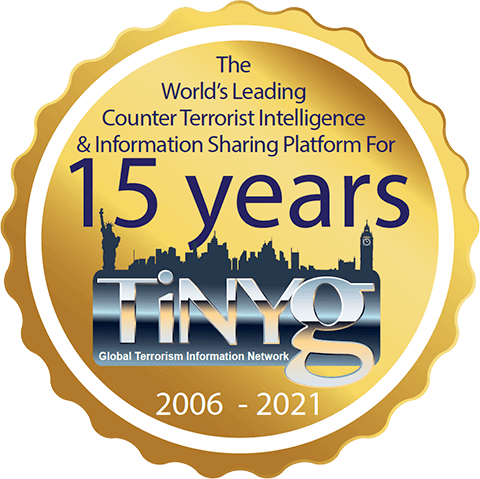23/01/24
Gaza war creating a radicalisation moment, senior UK police officer says
The Israel-Gaza war has created a new "radicalisation moment" in the UK with the potential to push more people towards terrorism, the head of counter-terrorism policing has said.
Matt Jukes said "extraordinary amounts" of online comment, amplified by misinformation and AI-generated false images, had fuelled the "intense risk".
He compared the effect of the conflict to wars in Iraq, Afghanistan and Syria.
There have now been 33 arrests under terrorism laws related to Israel-Gaza.
These include people arrested for comments or slogans on protests. Officers would not confirm if terror plots had been detected.
The official government estimate of the threat of a terror attack remains at "substantial" - the third highest level of five - meaning an attack is "likely".
Briefing reporters on the threat of terrorism, Metropolitan Police Assistant Commissioner Matt Jukes said there had been 3,000 referrals to a counter-terrorism unit which monitors suspicious activity online.
700 had been identified as having a link to the UK, and potentially breaking the law. Some young children, including 11 and 12 year-olds, had been "engaging in troubling conversations".
"All of that online material is part of a dangerous climate," Matt Jukes said. It had created a "radicalisation moment, with the potential to push people towards terrorism".
"This is not simply rhetoric, we are seeing the signs of that intense risk," he added.
There was a 13% increase in referrals in 2023 to the government's Prevent programme, which assesses the risk of radicalisation and attempts to intervene.
Mr Jukes said potential terror attacks might not come immediately and "radicalisation can have a long tail".
But he warned: "In my seat you tend to look at dashboards of indicators and there are needles on that dashboard that are moving in the wrong direction."
Detectives remain most concerned by the threat of a "lone actor" attack, possibly by "chaotic" individuals with poor mental health.
War Crimes Unit
A team of more than 20 officers is now dedicated to investigating potential war crimes, including allegations relating to Israel-Gaza.
This has received 92 referrals connected with the conflict, of which 73 were against Israel and 19 against Hamas. Investigations are at an early "review" stage.
The police have been criticised for dedicating resources to war crimes offences which include "crimes against humanity", genocide and torture.
But senior officers stress that for every £100 pounds spent on counter-terrorism policing, only 30p goes on investigating war crimes.
"We should not allow the UK to be a safe haven for war criminals," Mr Jukes said.
Senior officers also say the UK has a legal duty to support the work of the International Criminal Court, and coroners' inquests into the deaths of British nationals.
The problem detectives face is that they might receive "dossiers" of evidence that war crimes have been committed, but no first or second-hand eye witness accounts.
Information tends to come from law firms, non-government organisations such as charities, and "people in the middle of conflict".
Hostile states
The counter-terrorism command is also dealing with an increased threat from hostile states, principally Russia, Iran and China.
In a recent case, an Austrian man, Magomed-Husejn Dovtaev, was jailed for three years after being spotted by security guards carrying out "hostile reconnaissance" on an Iranian media company in Chiswick, London, which had been threatened due to its reporting on Iran.
Police are also concerned states targeting the UK are paying criminals to carry out their activities, because an organised crime gang may find it easier to operate across borders and move weapons than a spy.
A new investigations team has been set up to counter hostile states, closely linked to the security and secret intelligence services, MI5 and MI6.
Related Links
Back to index

